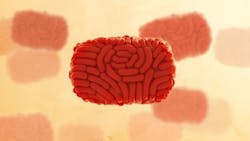FDA issues new monkeypox information for human cells and tissues
The Food and Drug Administration released a new safety and availability communication on Monday, August 29, 2022, regarding monkeypox virus and the donation of human cells and tissues. The communication emphasized that “worldwide, there have been no reports of transmission of monkeypox virus through use of human cells, tissues, or cellular or tissue-based products (HCT/Ps); therefore, the risk of infection transmitted by implantation, transplantation, infusion, or transfer of HCT/Ps remains theoretical.”
While the levels of infectious virus in human cells and tissues have not been well characterized, the agency confirmed that “monkeypox virus nucleic acid has been detected in tissues and secretions of infected humans, such as in skin, semen, and placenta.”
FDA confirmed that routine screening measures are already in place for evaluating risk factors and conditions as well as clinical evidence and physical evidence of infection in HCT/P donors. Allogeneic donor screening includes a donor medical history interview and review of relevant medical records to look for risk factors and conditions that may lead to a determination that a donor is ineligible. Accordingly, “due to the robustness of existing donor screening recommendations,” the agency does not recommend using laboratory diagnostic tests to screen HCT/P donors for monkeypox virus.
Furthermore, existing regulations require that the HCT/P establishment’s responsible person determine and document the eligibility of an allogeneic cell or tissue donor. Similar to their approach early in the COVID-19 pandemic, FDA stated that, based on information available at this time, establishments may wish to consider, whether, in the 21 days prior to HCT/P recovery, the donor:
- was diagnosed with or was suspected of having a monkeypox infection;
- had close contact with a person or an animal diagnosed with or suspected of having monkeypox infection regardless of the donor’s vaccination status; or
- developed a rash or other symptoms suggestive of monkeypox infection.
For donors who have received the ACAM2000 vaccine, a licensed live replicating virus vaccine indicated for active immunization against smallpox that may be used against monkeypox, FDA’s recommendations outlined in the 2007 guidance on HCT/P donor eligibility remain applicable. The guidance also includes recommendations for donors with clinically recognizable vaccinia virus infection from contact with someone who received a live replicating virus smallpox vaccine. The licensed non-replicating virus vaccine indicated for prevention of monkeypox (JYNNEOS) does not carry this same concern. AABB encourages members to carefully review the 2007 recommendations to ensure compliance.
FDA also provided considerations for cadaveric donors, stating that ”HCT/P establishments should determine whether an autopsy was not performed due to a perceived risk of transmission of communicable disease or, if an autopsy was performed, whether any special precautions were taken that would suggest there was a special concern over the risk of transmission of a communicable disease from the donor.”
FDA will continue to monitor cases of monkeypox in the U.S. and worldwide and available information about potential risks of monkeypox virus transmission by HCT/Ps. The agency will communicate, as appropriate, as additional information becomes available.
The agency’s Aug. 12 safety and availability communication for blood establishments regarding the monkeypox virus and blood donation has not changed. Refer to AABB’s Interim Monkeypox Virus Fact Sheet, Monkeypox Summary and Monkeypox Resources to Consider for more information.

